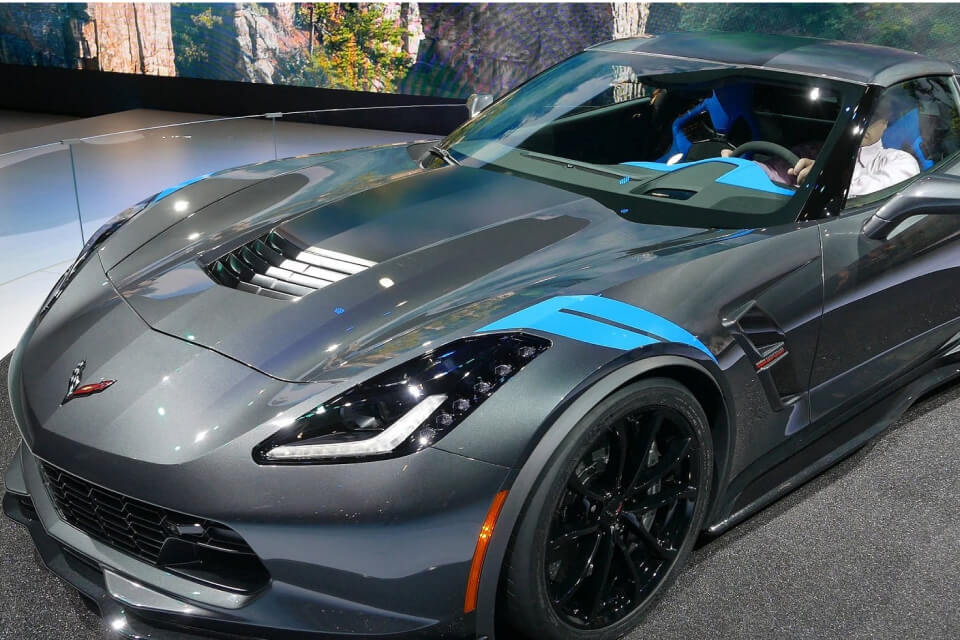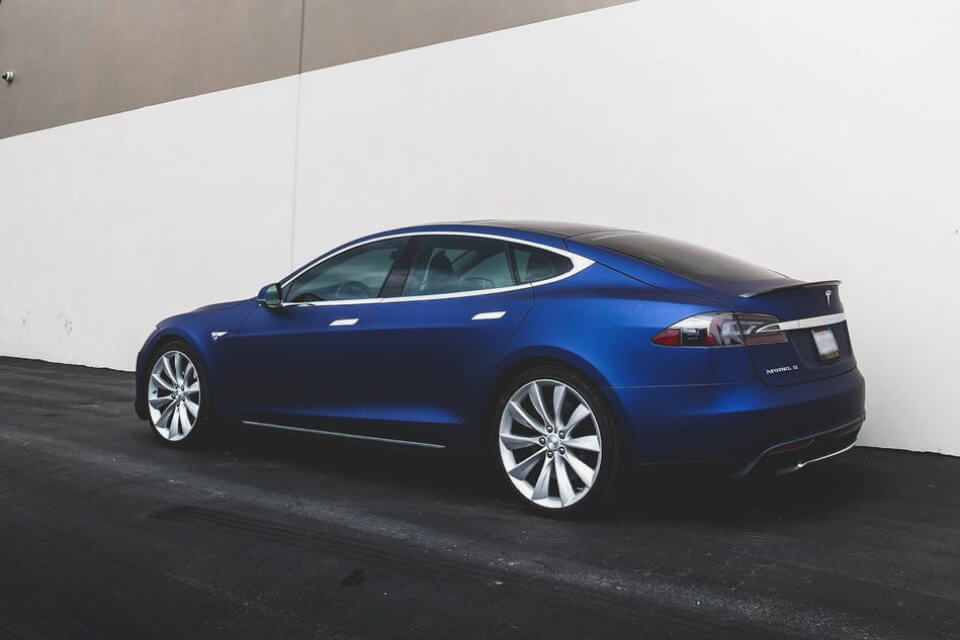The Impact Of 5G On Connected Cars: What To Expect
The introduction of 5G technology is set to revolutionize the automotive industry, particularly in the realm of connected cars. With the implementation of 5G networks, the automotive sector is poised to experience significant advancements in vehicle-to-vehicle communication, real-time data transmission, and enhanced safety features. As 5G technology continues to evolve, it is expected to bring about a new era of connectivity and innovation in the automotive world, ultimately reshaping the way we perceive and interact with our vehicles.
The anticipated impact of 5G on connected cars has generated a great deal of interest and curiosity among industry experts and consumers alike. The potential for ultra-fast download speeds, low latency, and seamless connectivity has the automotive community eagerly anticipating the incorporation of 5G technology into their vehicles. Furthermore, the prospect of improved navigation systems, enhanced autonomous driving capabilities, and the integration of advanced infotainment features has captured the imagination of those following the developments in connected car technology. As 5G networks continue to expand and mature, the automotive landscape is primed for a paradigm shift that will redefine the driving experience for years to come.
1. Faster and More Reliable Connectivity
With the implementation of 5G technology, connected cars are expected to experience significantly faster and more reliable connectivity. This means that vehicle-to-vehicle communication, as well as communication between vehicles and infrastructure, will be smoother and more efficient. 5G’s low latency and high data transfer rates will enable real-time communication, leading to improved safety and enhanced driving experiences for consumers.
Additionally, 5G will also allow for more advanced features in connected cars, such as high-definition video streaming, immersive in-car entertainment, and seamless integration with other smart devices and systems. Overall, the faster and more reliable connectivity provided by 5G will revolutionize the way cars interact with each other and the world around them.
2. Enhanced Autonomous and Semi-Autonomous Driving
5G technology is expected to play a crucial role in the development and deployment of autonomous and semi-autonomous driving capabilities in connected cars. The high-speed, low-latency connectivity provided by 5G networks will enable vehicles to gather and process large amounts of data in real time, allowing for more accurate decision-making and improved safety on the road.
Furthermore, 5G will support the implementation of advanced sensor technologies, such as LiDAR and radar, which are essential for enabling vehicles to “see” and navigate their surroundings. This will pave the way for fully autonomous driving experiences, where vehicles can operate with minimal human intervention, leading to safer and more efficient transportation systems.
3. Seamless Software Updates and Maintenance
5G connectivity will also streamline the process of software updates and maintenance for connected cars. With faster download and upload speeds, as well as improved network reliability, car manufacturers will be able to remotely push software updates to vehicles in real time, without the need for physical recalls or visits to the dealership.
This will not only save time and resources for both manufacturers and car owners but also ensure that vehicles are always running the latest software versions with up-to-date security patches and performance enhancements. As a result, 5G will enable a more seamless and convenient experience for maintaining and updating connected car systems.
4. Improved Traffic Management and Navigation
5G’s high-speed connectivity and low latency will enable more efficient traffic management and navigation systems for connected cars. With real-time access to traffic data, road conditions, and infrastructure updates, vehicles will be able to adjust their routes dynamically to avoid congestion, accidents, or road closures.
Moreover, 5G will support the development of advanced navigation features, such as augmented reality overlays and real-time location-based services, providing drivers with more intuitive and accurate guidance. This will not only improve the overall driving experience but also contribute to reducing traffic congestion and enhancing overall road safety.
5. Enhanced Vehicle-to-Everything (V2X) Communication
5G technology will significantly enhance vehicle-to-everything (V2X) communication, allowing connected cars to exchange data with other vehicles, pedestrians, traffic lights, and infrastructure in real time. This will enable a wide range of safety and efficiency applications, such as collision avoidance, emergency vehicle warnings, and optimized traffic flow.
Furthermore, 5G’s high bandwidth and capacity will support the proliferation of V2X communication, enabling more vehicles and infrastructure to participate in the exchange of data. As a result, connected cars will be able to operate more intelligently and cooperatively, leading to safer and more efficient transportation systems.
6. Advanced In-Car Entertainment and Connectivity
5G’s high-speed connectivity and low latency will unlock new possibilities for in-car entertainment and connectivity in connected cars. With 5G, passengers will be able to enjoy high-definition video streaming, immersive gaming experiences, and seamless access to online content and services while on the go.
Additionally, 5G will enable more seamless integration with other smart devices and systems, allowing for enhanced connectivity and productivity while inside the vehicle. This will transform the in-car experience, making connected cars not just a mode of transportation but also a hub for entertainment, productivity, and connectivity on the go.
7. Enhanced Cybersecurity and Data Privacy
5G technology will also bring advancements in cybersecurity and data privacy for connected cars. With its robust security features and capabilities, 5G networks will help protect vehicles from cyber threats and unauthorized access, ensuring the integrity and confidentiality of the data transmitted and received by connected cars.
Furthermore, 5G will enable more secure and reliable communication between vehicles and infrastructure, reducing the risk of potential cyber attacks and ensuring the safety and privacy of drivers and passengers. As connected cars become more integrated into the digital ecosystem, 5G’s enhanced cybersecurity features will be essential for safeguarding the integrity and trustworthiness of connected car systems.
8. Accelerated Innovation and Industry Growth
Overall, the impact of 5G on connected cars will accelerate innovation and growth within the automotive and technology industries. The enhanced connectivity, advanced capabilities, and new possibilities brought by 5G will drive the development of new applications, services, and business models for connected cars, leading to a more dynamic and competitive market.
Additionally, 5G will foster collaboration and partnerships between automotive manufacturers, technology companies, and telecom providers, creating new opportunities for synergies and co-innovation. This will not only benefit the development of connected car technologies but also contribute to the broader advancement of 5G-enabled solutions and services in the automotive industry.
What To Expect
| Aspect | Impact |
|---|---|
| Speed | 5G will provide faster and more reliable internet connection for connected cars, enabling real-time data transfer and reducing latency. |
| Safety | 5G will enhance safety features in connected cars by enabling better communication between vehicles and infrastructure, leading to improved accident prevention. |
| Autonomous Driving | 5G will play a crucial role in the development and deployment of autonomous vehicles, as it will support the massive data processing requirements for self-driving cars. |
| Entertainment | 5G will enable high-quality streaming and immersive entertainment options for passengers in connected cars, enhancing the overall driving experience. |
| Infrastructure | 5G will require significant infrastructure upgrades to support its network capabilities, which may lead to improved connectivity and coverage in remote areas. |
The impact of 5G on connected cars is expected to revolutionize the automotive industry, leading to safer, more efficient, and more enjoyable driving experiences. With faster internet speeds, enhanced safety features, support for autonomous driving, and improved infrastructure, 5G will pave the way for the next generation of connected vehicles.



